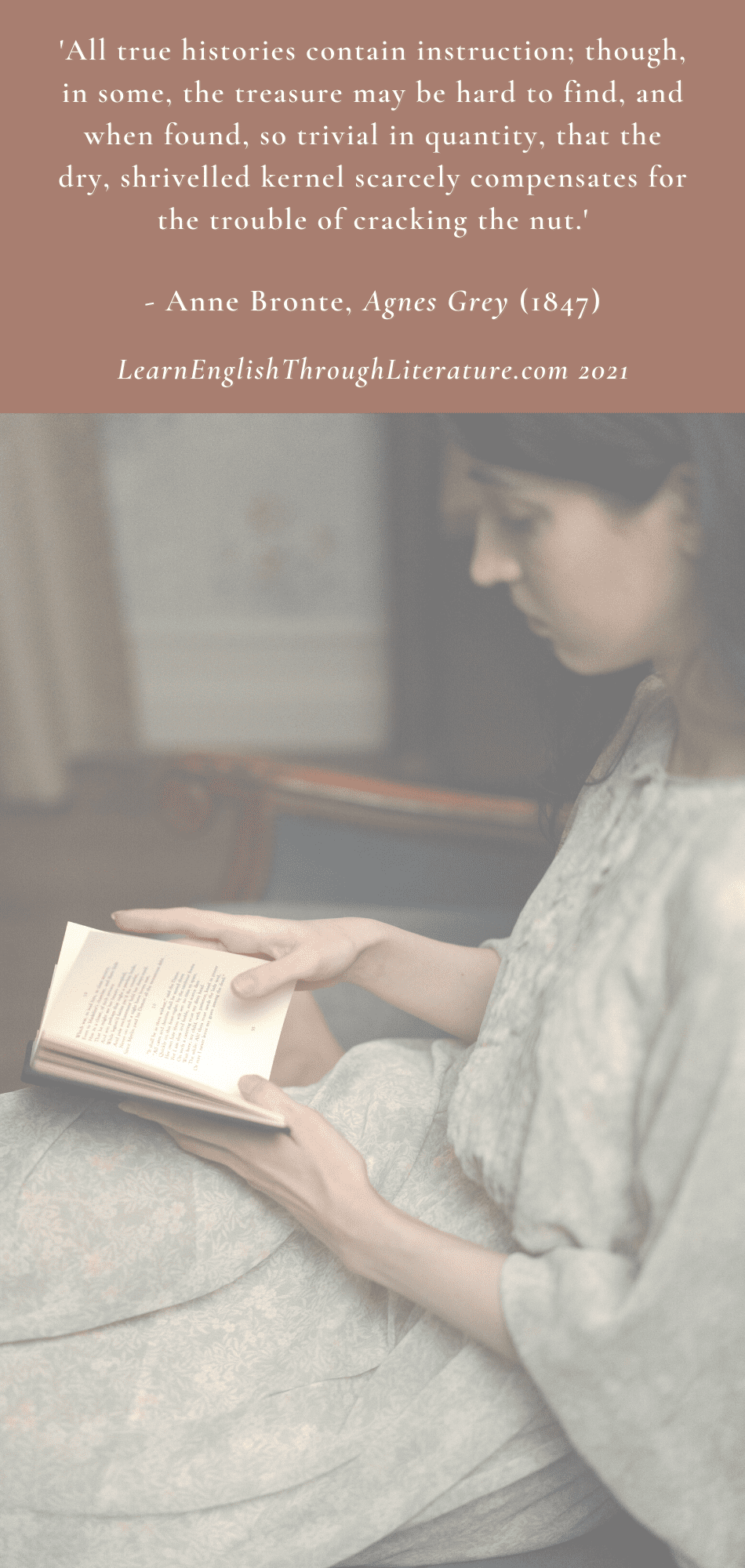📙 ‘All true histories contain instruction; though, in some, the treasure may be hard to find, and when found, so trivial in quantity, that the dry, shriveled kernel scarcely compensates for the trouble of cracking the nut.’
― Anne Brontë, Agnes Grey (1847)
One of the books I turn to whenever I want a short, light, and meaningful read is Anne Bronte’s Agnes Grey.
I have wanted to return to it in a Lesson for some time – it has been almost a year since our last Lesson on it! 🧵
Given that we have had some grammar-focused Lessons recently, it seems the perfect time to enjoy a good novel in closer detail. 📙
So today I will be reviewing this lovely little novel in my own words with some quotations directly from its pages. I will provide some vocabulary within the text (look out for 10 words or phrases you need to learn 🧐) and so you will also have the opportunity to practice some reading comprehension.
This will be the first Lesson of two on Agnes Grey, since on re-reading the book I have discovered some useful grammar tips that I will save for another Lesson soon!
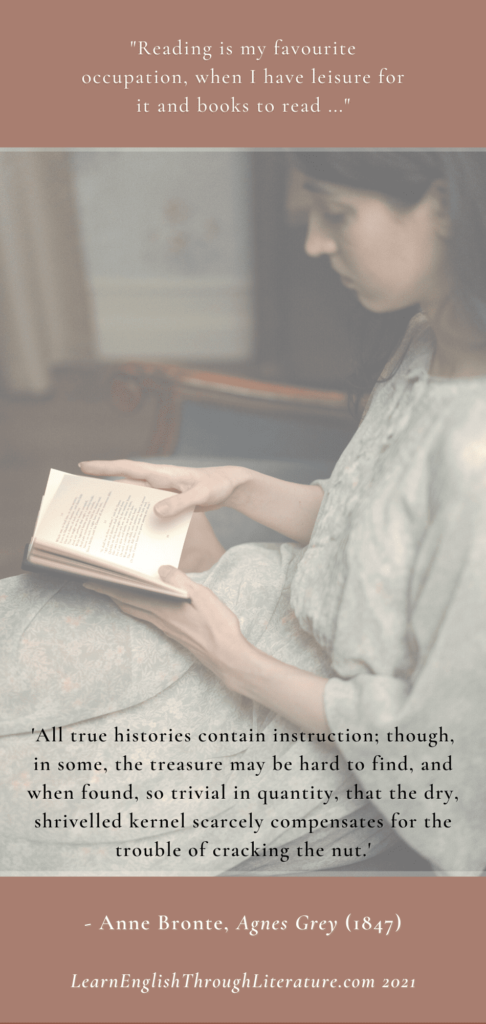
…
📙 AGNES GREY (1847) by ANNE BRONTE
This short novel tells the story of a young woman, Agnes Grey, who leaves her loving family to work as a governess or a live-in tutor to a wealthy family.
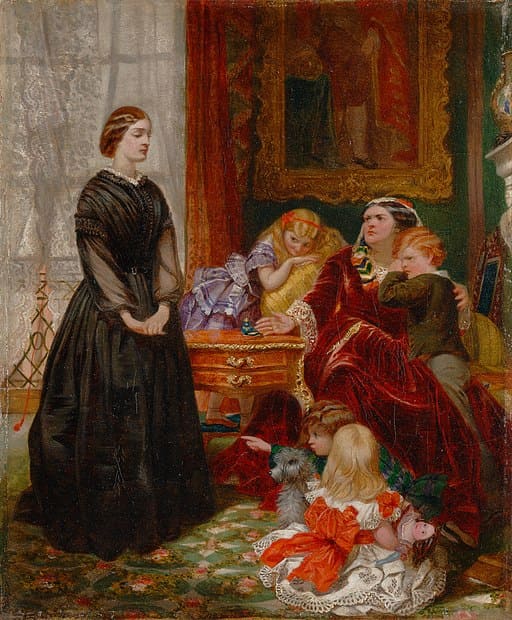
CC BY-SA 4.0, via Wikimedia Commons
In the Victorian period, this was often the only respectable career or job opportunity for a poor yet educated woman – in fact, both Anne and Charlotte Bronte worked as governesses for several years.
Anyone who has worked as a babysitter or childminder will recognise some of the challenges Agnes Grey faced as she tried to teach the children manners and basic education. She tries to exercise authority over them through rules and strictness when they misbehave but feels that a lot of her efforts are lost when the children’s parents ignore her and see her as being incapable (unable, lacking power or ability). They do not respect her even though they are employing her to care for and teach their children, and about halfway through the book, Agnes feels as though she is losing a battle because she has no support.
This brings us to another topic in the novel: animal cruelty.
Throughout the novel, Agnes often judges people based on their kindness to animals and the poor – two vulnerable groups who cannot defend themselves against cruelty and need mercy.
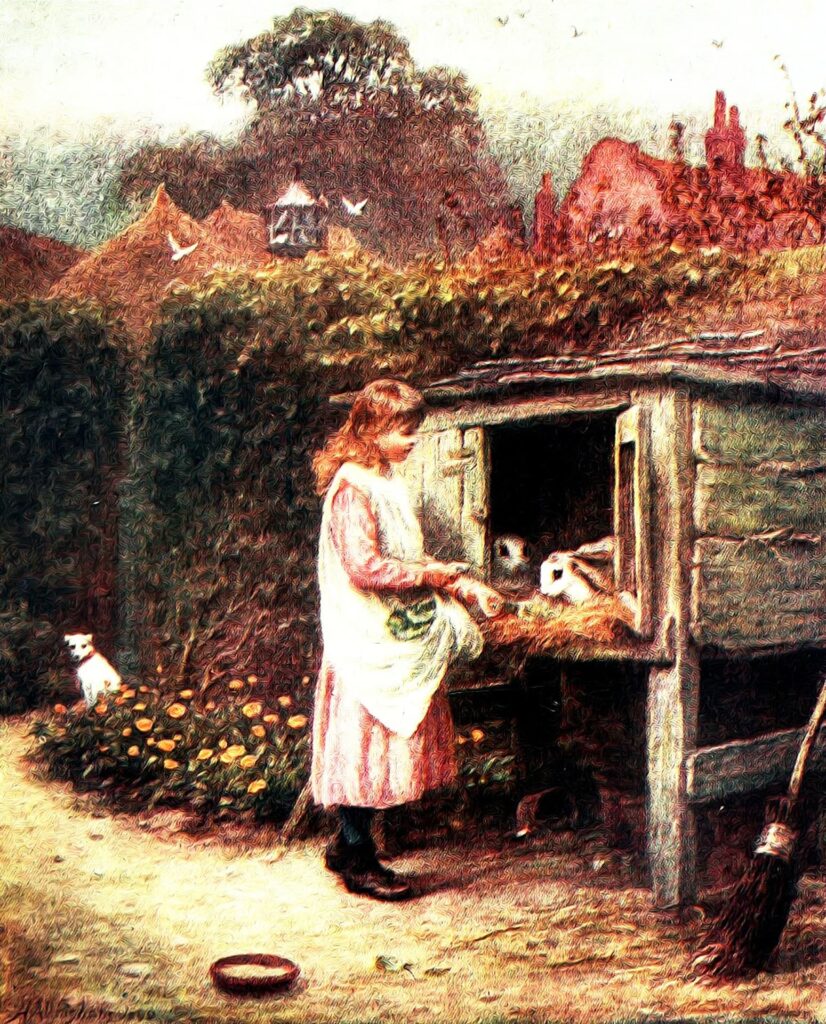
Image Credit: Prawny, Pixabay
In a striking (making a strong impression) scene, Agnes decides to leave her job after she witnesses her employers torturing (intentionally harming for a long time) some chicks (or young birds).
Her decision to leave is made easier by the fact that Agnes has been raised to be morally conscious (aware) and caring in all she does; for this reason, she doesn’t see the ‘chick incident’ as a small matter but is willing to sacrifice her job security and income for doing what she thinks is right.
📙 “The end of Religion is not to teach us how to die, but how to live….”
― Anne Brontë, Agnes Grey
Personal faith is a recurring (repeating) theme in this novel. Agnes Grey’s father is a parson, and she continues to practice her faith even while she works away from home.
📙 “You say you cannot love God; but it strikes me that if you rightly consider who and what He is, you cannot help it. He is your father, your best friend: every blessing, everything good, pleasant, or useful, comes from Him; and everything evil, everything you have reason to hate, to shun, or to fear, comes from Satan- HIS enemy as well as ours. And for this cause was God manifest in the flesh, that He might destroy the works of the Devil: in one word, God is love; and the more of love we have within us, the nearer we are to Him and the more of His spirit we possess.”
― Anne Brontë, Agnes Grey
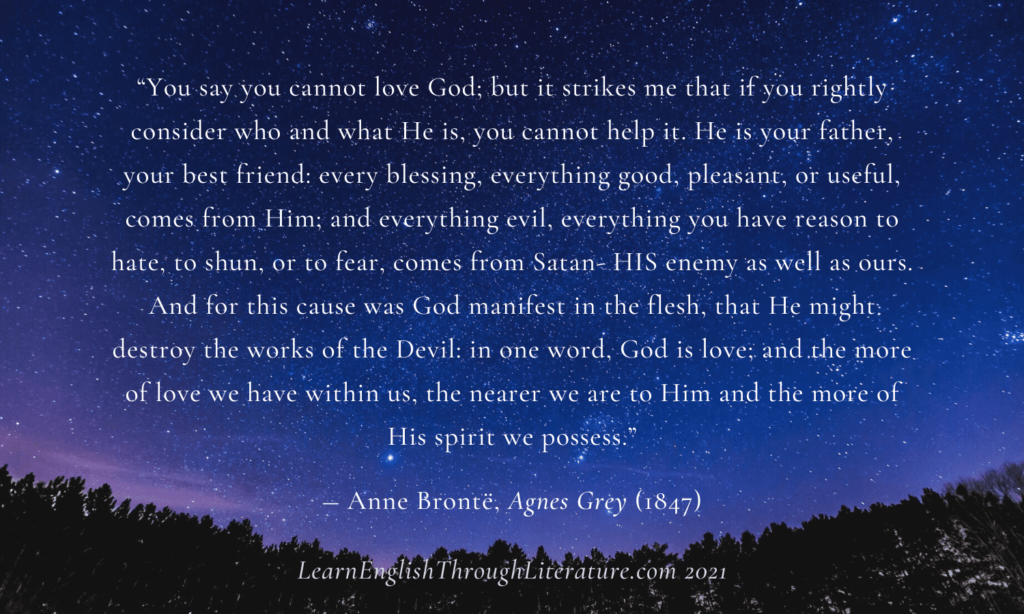
It is clear that her religious upbringing (the way her family raised her, how she grew up) influences her and gives her inner strength to risk further embarrassment through new work. She soon applies for another position (job, in this context) as a governess to the Murray family, and slowly but surely her hard work and kindness begin to show fruit (to have an effect) on the children under her care.
This novel is told in the first person, that is, from the perspective of Agnes Grey herself. For this reason, many readers think it is an autobiographical book. Furthermore, the details in the novel reflect what Anne Bronte, its writer, also experienced as a governess. This brings me to another point: Agnes Grey is a very down-to-earth story that describes the everyday life of a governess in great detail. Unlike other Bronte novels, it does not have much drama or excitement because it mainly focuses on the daily teaching and childcare that women like Anne Bronte used to carry out (do) for rich families in her day.
Education – moral as well as academic education – is a major theme in this story. That said, you will still find a hint of romance in the novel’s pages, enough love to provide Agnes with an idea of what the ideal human being should be: good and strong, intelligent, kind to the weak, and brave.
It is the kind of novel that leaves many of its readers encouraged by its portrayal (drawing, picture) of nobility – not necessarily rich nobility, but nobility of character, as seen through Agnes Grey and the people who love her.
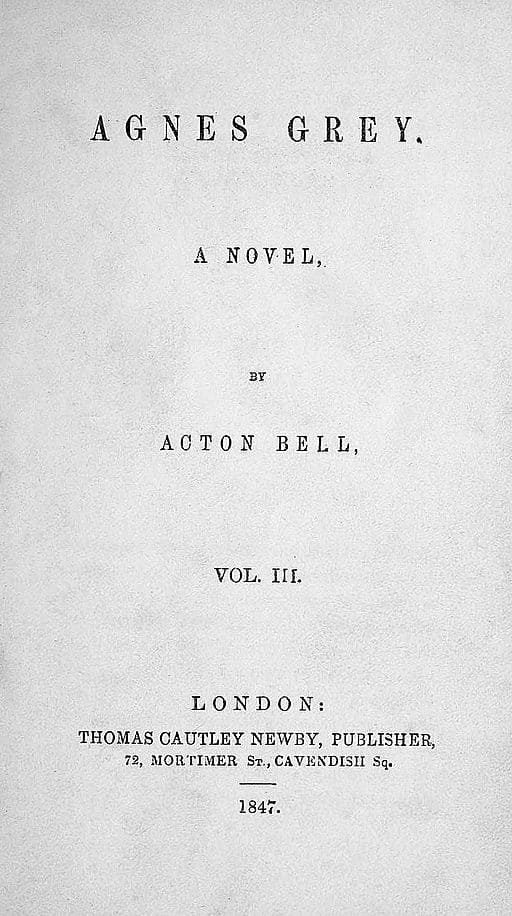
(Note how she used a male pseudonym or writer’s name – Acton Bell – which enabled her book to be published with more authority).
Image Credit: Wikipedia Commons
…
Perhaps this short overview of the novel has encouraged you to read it for yourself?
If you are interested in how the Victorians educated and cared for their children, then it will be a perfect read for you! 📙
Even if you don’t have a physical copy of it, you can read Anne Bronte’s Agnes Grey for free through an audiobook here on YouTube and a copy of the text through Gutenberg.org 👈
Don’t forget to join me next week for another Lesson based on this novel, in which we look at how to correctly use ‘while’ vs ‘when’ in English.

